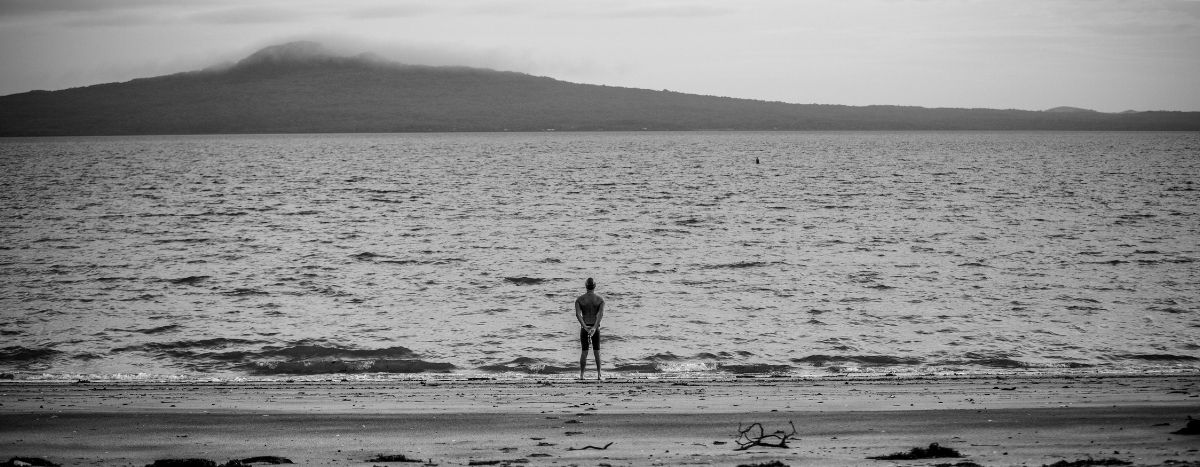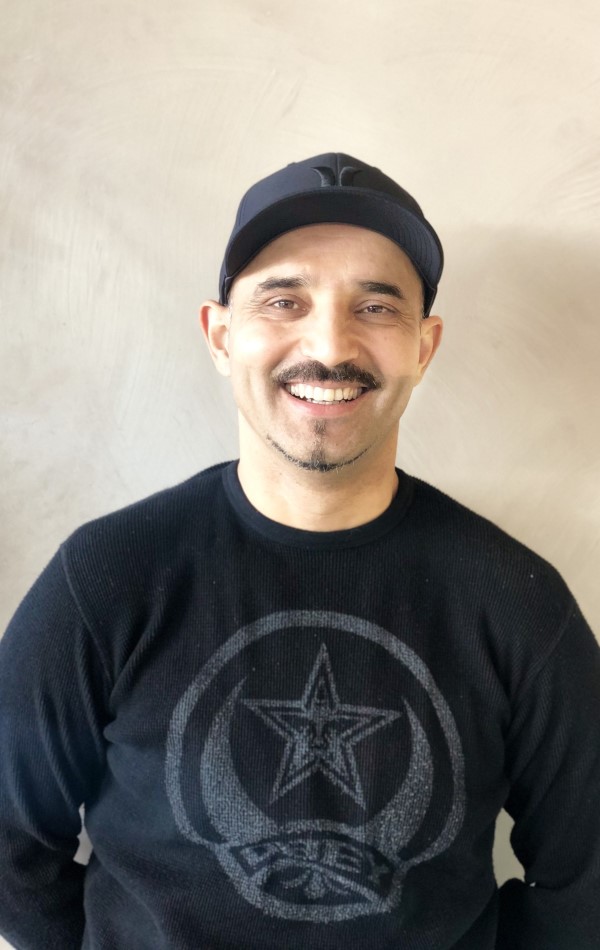Life Insurance
Lump sum payment if you were to pass away or are diagnosed with a terminal illness.
AIA Vitality NZ - 5 min read
12 February 2021
He battled a debilitating illness as a child, then fled war-torn Afghanistan and arrived in New Zealand with nothing. Now, he’s swimming a 100km relay to raise money for St John New Zealand. Meet Karim Rostami.

Karim Rostami is always up for a challenge. Every year, the self-proclaimed ‘charity addict’ finds new ways to give back to his community, by raising funds and competing in events like Ironman comps and ocean swims.
In March 2021, he’s doing the Great Barrier Challenge joining a small team – which includes AIA Vitality Ambassador Ian Jones – to swim a 100km relay (which sets off from Great Barrier Island and ends in central Auckland). They’re hoping to raise enough money for St John New Zealand to buy two new rural ambulances, known as First Response Units – a whopping total of $500,000.
This sort of event is a test for even the strongest swimmer. But 40-year-old Karim only learnt to swim a few years ago.
“I learned how to swim in 2014,” he says. “My first event ever was an open water swim in 2015 – before that, I couldn’t even swim the length of a pool.”
But Karim’s story is more than that of a fit young man, competing in events and fundraising for charity. You see, when he was two-years-old and living in Kabul, Afghanistan, Karim contracted polio.
“I was a healthy, chubby baby. I was really fine,” Karim explains. “And then, I got very sick. My parents took me to hospital, where I stayed for a week. But when my mum took me home, she noticed that I had no movement from the waist down.”
Karim’s mother took him back to the hospital, demanding to know what was wrong with her son. “That was when the doctors gave her the news that I had been infected by polio and, because all the muscles in my legs were dead, I’d never walk again.”

After years of therapy, “and lots of love from mum and dad”, Karim has regained some movement in his legs and hips. His walking is limited, but he struggles to run or go up or down stairs. “If you compare me to a normal person, my legs are probably functioning at about 25 to 30%,” he says.
This had a huge impact on Karim’s life. He was bullied by kids at school – pushed around and called names – but he believes the virus also gave him strength. He learnt how to be a fighter, and how to survive. He admits that polio robbed him of his childhood but it turned him into a much stronger person.
“If I’m going to be recognised as polio boy, I’m going to use that profile to create change, to fight and to raise money,” Karim says. “If I can stop one kid going through what I went through, that’s worth everything.”
Life for Karim took another turn when he was a teenager. Up until then, he and his family lived a normal life in Kabul. His parents were both educated and employed, and weren’t involved in politics. They were a regular, happy family. But when the Taliban invaded the city, everything changed.
“I was always outspoken and nosy, and I don’t stand for bullies,” Karim says, adding that his parents were worried he’d be shot and killed for standing up for himself, or asking too many questions. They decided, as a family, that Karim would leave the country and start a new life somewhere else. “I left on my own because we couldn’t afford to take the whole family,” he says. “It was a big decision for my family to make for me.”
Karim left Afghanistan in 1999, arriving in New Zealand with nothing. He had no money, no friends, he couldn’t speak the language, and he was faced with a huge culture shock. “It was challenge after challenge after challenge,” he recalls. “I arrived here with only the shirt on my back.”
“I had so many problems, I had depression. But swimming, keeping fit, talking to people, giving back – these are the things that help you come back to yourself. I feel stronger now than I did five years ago.”
But Karim worked hard. He got a job, saved money. After a few years, the New Zealand government sponsored his family, and his parents, brothers and sisters joined him in the country. In 2011, Karim bought his own house. “Now, New Zealand is my home,” he says. “To this day, I’m so grateful to be alive.”
Karim’s positive outlook is nothing short of inspirational – and that’s his aim.
“I started my craziness (participating in events) at the age of 34, 35. But in most sports, 35 is when people retire!” he says. “I had so many problems, I had depression. But swimming, keeping fit, talking to people, giving back – these are the things that help you come back to yourself. I feel stronger now than I did five years ago.”
Karim feels that doing these events, and raising money for important initiatives, has given him a new outlook on his life. “It’s given me back my confidence, my mental health, my toughness, the goosebumps, the sense of achievement,” he says. “You’re one person and you can touch so many people. And the power of community? I just love it.”
At the end of the day, Karim wants to inspire those around him to get up and give things a go. “I’m not the fittest person. I’m only 60 kilos. But I want people to look at me and say, if this guy can do it, I can do it too.”
Support Karim’s Great Barrier Challenge by donating here.
Disclaimer: The information in this article is general information only and is not intended as financial, medical, health, nutritional, tax or other advice. It does not take into account any individual’s personal situation or needs. You should consider obtaining professional advice from a financial adviser and/or tax specialist, or medical or health practitioner, in relation to your own circumstances and before acting on this information.